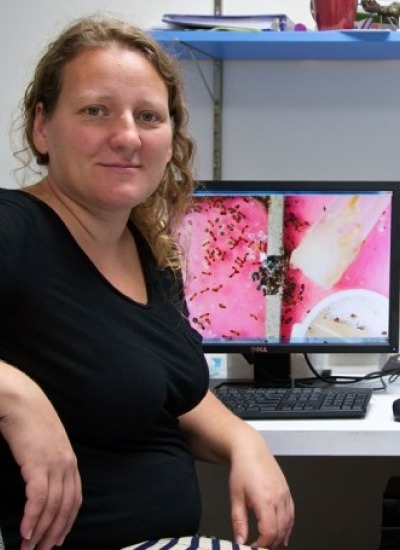Anna R Dornhaus
Publications
Abstract:
A high-quality home can be a major factor determining fitness. However, when house hunting becomes necessary, animals might often face a speed-versus-accuracy trade-off and therefore be unable to survey their environment extensively for the optimum site. We found that the ant Leptothorax albipennis was able to correct errors made in such a hurried decision by continuing to survey even after a colony had settled in a nest site. Colonies moved from intact undisturbed nests to another nest site whenever the new nest site presented a sufficient improvement in nest quality. Thus, scout ants must be able to judge and compare the quality of the new, empty nest site with the one currently inhabited by the colony. Emigrations from intact nests were initiated by high numbers of ants recruited by tandem runs. This evidence may explain how a small number of scouts can motivate an entire colony to move when there is no immediate need to do so. Compared with their behaviour in emigrations from destroyed nests, the ants favoured even more strongly accuracy over speed, because they waited for a larger number of scouts to agree on one site before starting the emigration. They could do this without increased risk because the rest of the colony remained safely in the old nest. © 2004 The Association for the Study of Animal Behaviour. Published by Elsevier Ltd. All rights reserved.
Pagination
- First page
- Previous page
- …
- 10
- 11
- 12
- 13
- 14
- 15
- 16
- 17
- 18


